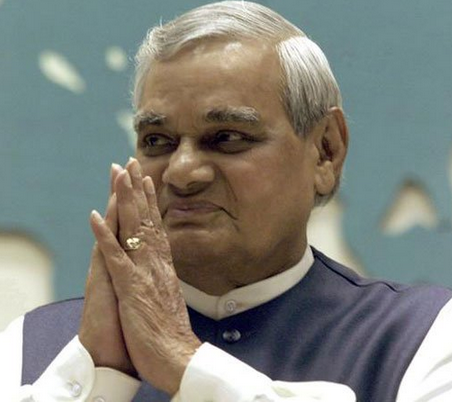Atal Bihari Vajpayee: A politician and a gentleman
A poet, politician, statesman and a sophomore – remembering the legacy of Atal Bihari Vajpayee on his birth anniversary
Atal Bihari Vajpayee born on 25the December 1924, firmed up his determination to devote himself to a social and cultural cause , in free India. As a teenager, he was comprehending the national developments and had matured by 1947 to realise how tough a task it was for the nation to re-establish itself on the global stage, and simultaneously give its people what they needed to lead a dignified life. He understood the pulse of the people and was blessed with the gift of a flawless oratory that touched the hearts of the listener, both through his speeches, and also his poetry. He endeared himself to the masses , stuck dexterously to his ideological moorings in thick and thin.
Young Atal Bihari Vajpayee became a member of parliament in 1957 when he was only 33 years old. He was very young in the house of veterans of the freedom struggles. It was not only his oratorial skills that impressed everyone including the prime minister Pt. Jawahar Lal Nehru, but the content and intensity of analysis, understanding and inference that he presented before the people. He grew up as a talented young person liked and admired by all around him.
A reference is often made to his having compared Prime Minister India Gandhi to Durga, after her admirably courageous handling of the war resulting out of the butchery of Pakistan on its people, and the unprecedented rush of refugees to India. As the major leader of the Opposition, Vajpayee unequivocally gave all the credit to the Prime Minister and praised the defence forces! Whether he used the phrase Durga or not becomes immaterial . Let one also recall that the entire opposition and the people of India –negligible minor exceptions apart – stood firmly behind the leader of the nation.
We are a free country, but were we successful in sustaining the democratic values in the true sense, as new generations of politicians entered the precincts of the parliament? The decline could well be understood if one recalls the episode of April 17, 1999, when a no-confidence motion against the Vajpayee government was put to vote in the Lok Sabha! While some of the constituents of the NDA played truant , there was a real serious lapse that would go into history as a dark spot.
Girdhar Gomango had taken over as the Congress chief minister of Odisha but had not resigned from the Lok Sabha seat.
He was specifically asked to fly to New Delhi and vote against the Vajpayee government. He did cast his vote ! Had he not, there would have been a tie, and the speaker could have saved the government.
The political chaos was so complex that the opposition could not offer any alternative, and the Lok Sabha had to be dissolved , and the TINA factor worked, and Vajpayee continued as the Prime Minister! Historians shall incisively examine whether this Giridhar Gomango vote heralded a new chapter on the decline of political ethics! To me, it was an instance of ethical adherence on the part of Vajpayee, who could have asked for a recount , and would certainly have won! He did not indulge in any maneuverings which became a common practice in later years.
The strength of Indian democracy was re-iterated when Vajpayee submitted his resignation after a one-vote defeat! Vajpayee’s decision to go ahead with Pokhran -II and the manner he withstood all pressures during the Kargil War were two of the most courageous instances of decision-making.
Prime Minister Vajpayee continued the policies of liberalisation and globalisation as accepted by India in the times of P.V. Narasimha Rao and his finance minister Dr. Man Mohan Singh. Additional economic reforms introduced during his tenure of 1998 to 2004, resulted in India maintaining a GDP growth rate of 8%, the inflation level came down to around 4% and foreign exchange reserves were flourishing . It was a daring step to end the monopoly of government telecom companies. It also led to competition and hence lowering of call tariffs . Vajpayee was held as the father of modern telecom in India. Mobile phone connectivity was very heartening not only in the life of common men but its availability also removed an irksome hurdle that was often a point of complaint by the foreign investors.
Vajpayee could take a long-term view of the developmental initiatives that could help India in decades ahead, not necessarily thinking in terms of the next election only. In his long parliamentary life, it would be impossible to find someone who did not like him as a person, ideological orientations being another matter.
Vajpayee had the gift of Saraswati, the tenderness of heart, and this was his art of winning the hearts of people. He was affectionate and empathetic . Adversities could never demoralise him, rather these occasions gave him greater determination to succeed. He accepted challenges. For, party management was an art and not a craft as practised by the new generation of most politicians. His poetry indicates his concern for the nation and the people. Most of his time was spent in opposition, but I never found him desolate , or withdrawn .
